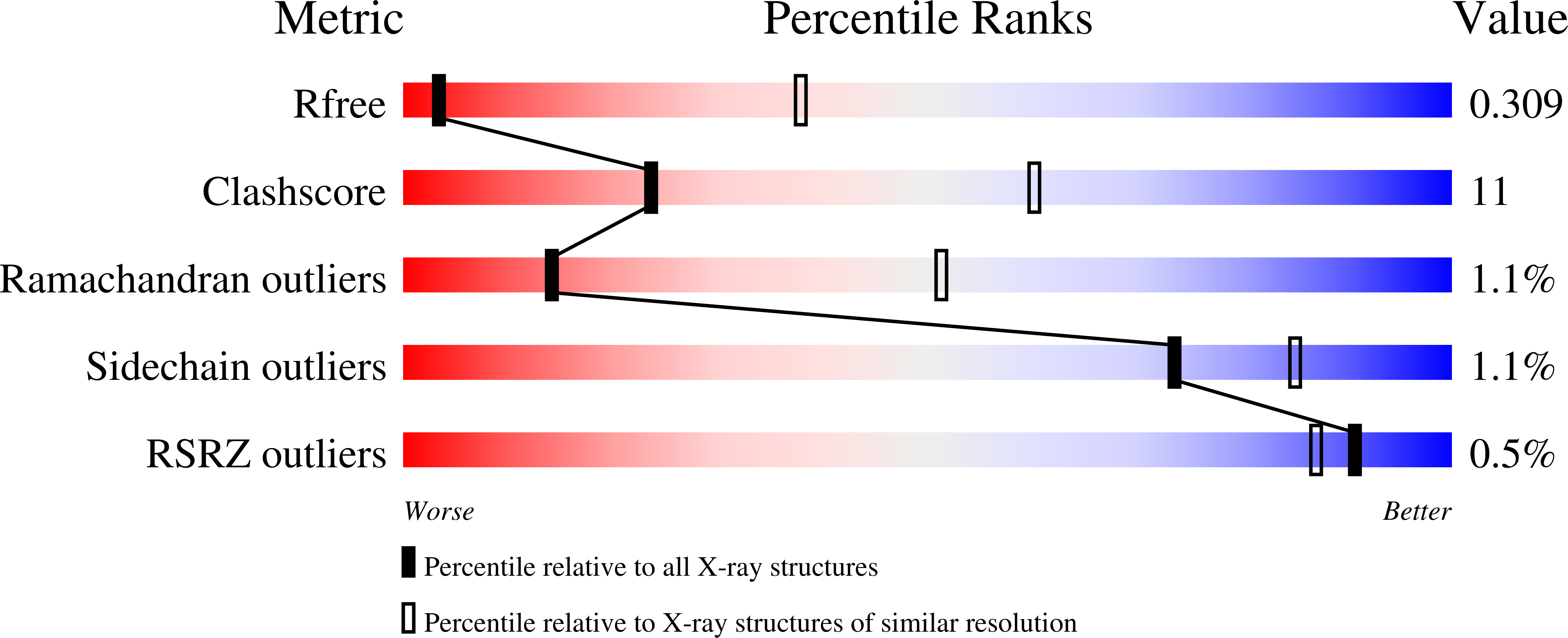
Deposition Date
2023-03-09
Release Date
2023-08-30
Last Version Date
2024-11-20
Entry Detail
PDB ID:
8GH4
Keywords:
Title:
Complex of Adam 10 disentegrin cysteine rich domains with human monoclonal antibody
Biological Source:
Source Organism(s):
Homo sapiens (Taxon ID: 9606)
Bos taurus (Taxon ID: 9913)
Bos taurus (Taxon ID: 9913)
Expression System(s):
Method Details:
Experimental Method:
Resolution:
3.80 Å
R-Value Free:
0.31
R-Value Work:
0.28
R-Value Observed:
0.28
Space Group:
P 21 2 21


